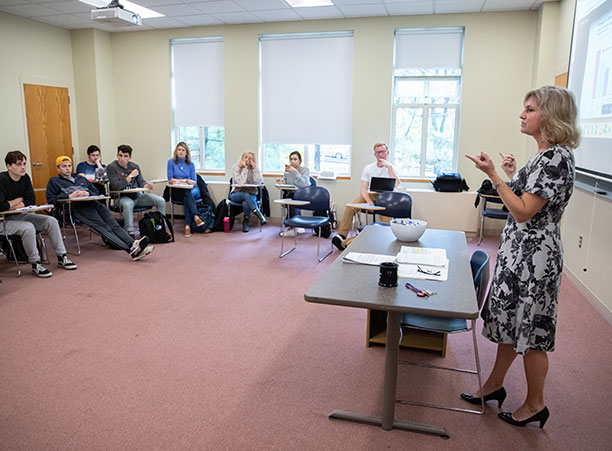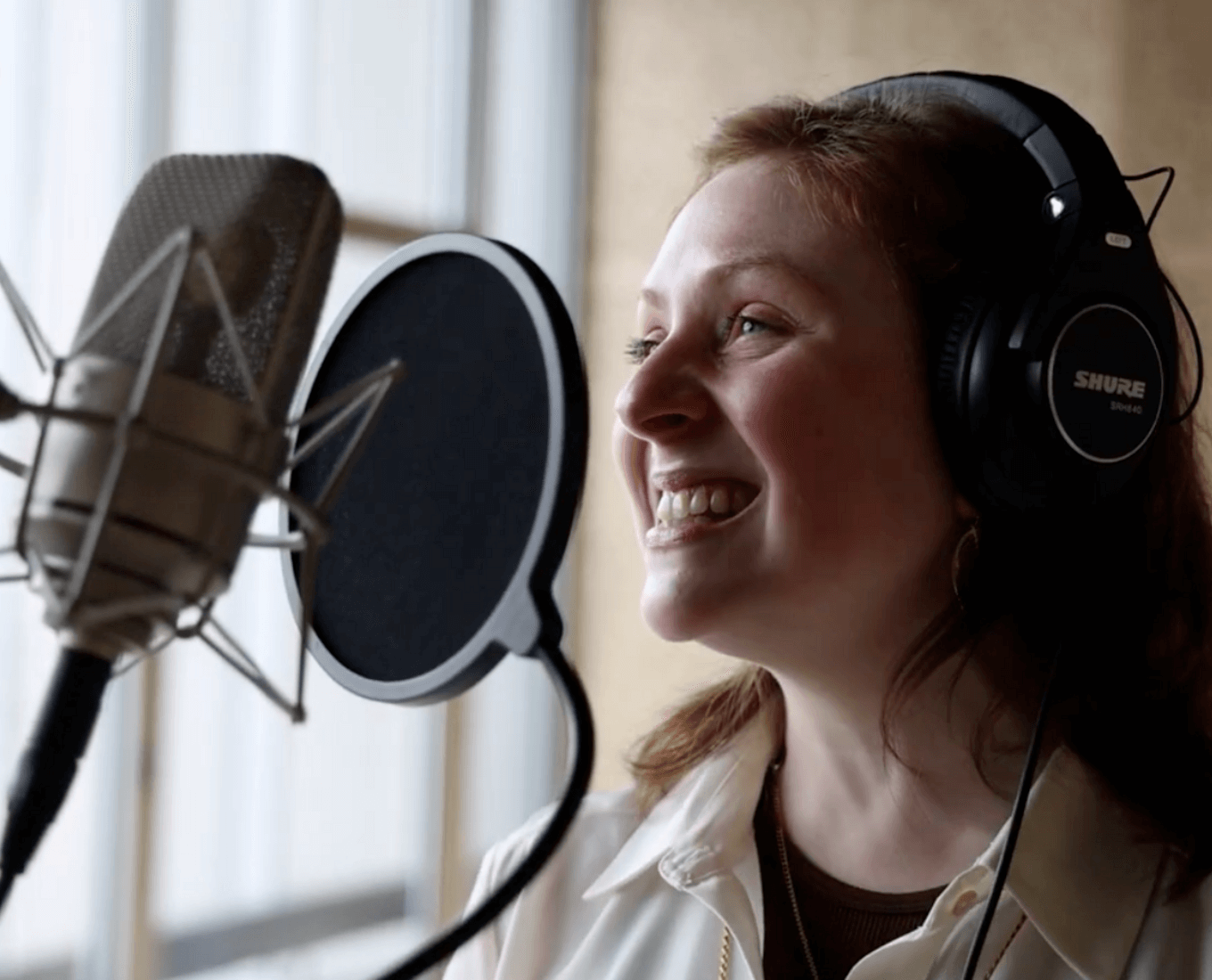, asks her class. "You wouldn't be able to buy other products, right?"
In the case of this conversation, the term "opportunity cost" denotes the loss of potential gain from other alternatives when one option is chosen.
"What is the opportunity cost of a mother in Malawi buying diarrhea medicine for one of her children?" Murmurs make their way around the classroom. "Her other children won't eat."
That rhetorical question is just one of the many ways Rask is asking her students to think outside the box in her course, Economics of Inequality. The course, run for the first time last fall with 48 students in two sections, was Rask's brainchild.
"I was looking for issues that I thought would be really interesting to students and we've been hearing a lot about inequality," Rask says. "It's been on my mind for a while, but I didn't have a structured understanding of the issue. So, I've spent a lot of time over the past year looking into the research in inequality. I finally decided I could put together a course and try to make it work."
Once word about the course spread around campus, other majors and concentrations felt it could suit their needs, as well. Now, with some expansion, the course also incorporates materials that are relevant to the international studies major and the peace and conflict studies concentration.
With a heavier-than-usual load of reading, Rask runs the course differently than many others at Holy Cross — she treats it like a graduate-level class. In addition to weekly readings, each student is responsible for writing a summary of two readings per semester. That way, Rask says, students have help reviewing readings.
The students, in turn, have taken the course and run with it.
"You don't typically get this much opportunity for discussion in an economics course," Rask says. "So for me, this has been really fun."
For Darwin Contreras '21, one of the biggest points that stuck is that there is so much more to inequality than just wealth disparity.
"Inequality is more intrinsic in our society than we thought because America is thought to be meritocratic," he says. "In the course, we learned how much inequality actually undermines this meritocratic society we think we have created."
The course has also allowed students to explore topics they're passionate about.
"I'm particularly interested in diversity in the job market on a gender basis, and this class has allowed me to dive deeper into the economic, social and political dimensions of that," says Bridget Alkin '21. "And with the mix of economics and international studies majors in the class, the environment creates dialogue to learn from different perspectives."
And for students like Alkin, the course has emphasized that economists can incite meaningful change.
"I've enhanced my ability to make real-world connections between social issues and policy ideas," she says. "The complexities of inequality, opportunity and access that I have been exposed to throughout the semester reinforce why I study economics and how I can actively promote change."
Course Catalog
 Students in Economics of Inequality tune in to Kolleen Rask. Photo by Avanell Brock
Students in Economics of Inequality tune in to Kolleen Rask. Photo by Avanell BrockProfessor: Kolleen Rask
Department: Economics
Description: Rising economic inequality of income, wealth and opportunity have become hot-button political issues. Inequality itself is multifaceted, so we will consider a variety of dimensions, including racial, gender, geographical, educational and international aspects of inequality. Anecdotes abound, but unfortunately, few of us have looked carefully at either the empirical evidence or the theoretical analysis of these phenomena. This semester we will examine both.
Meeting Times: Tuesday and Thursday 11-12:15; 12:30-1:45
Classroom: Stein 302
Required Reading: "Inequality in the 21st Century" edited by David B. Grusky and Jasmine Hill (Routledge, 2018); "Capital in the Twenty-First Century" by Thomas Piketty (Belknap Press of Harvard University, 2014)
Assignments: Readings; oral presentation; article summaries; two midterm exams
Grades: Article summaries, oral presentation, two midterm exams, final paper
About the Professor: Kolleen Rask is a professor of economics at Holy Cross. Her research interests include transition economics, economic development, international trade, food resources and history of economic thought. She earned a double B.A. in economics and Russian from Williams College and a Ph.D. in economics from Yale University. Prior to Holy Cross, she was a teaching assistant at Yale University and taught at Mount Holyoke College. She has been a member of the Holy Cross faculty since 1989.
Written by Jane Carlton for the Winter 2020 issue of Holy Cross Magazine.
About Holy Cross Magazine Holy Cross Magazine (HCM) is the quarterly alumni publication of the College of the Holy Cross. The award-winning publication is mailed to alumni and friends of the College and includes intriguing profiles, make-you-think features, alumni news, exclusive photos and more. Visit magazine.holycross.edu/about to contact HCM, submit alumni class notes, milestones, or letters to the editor.


